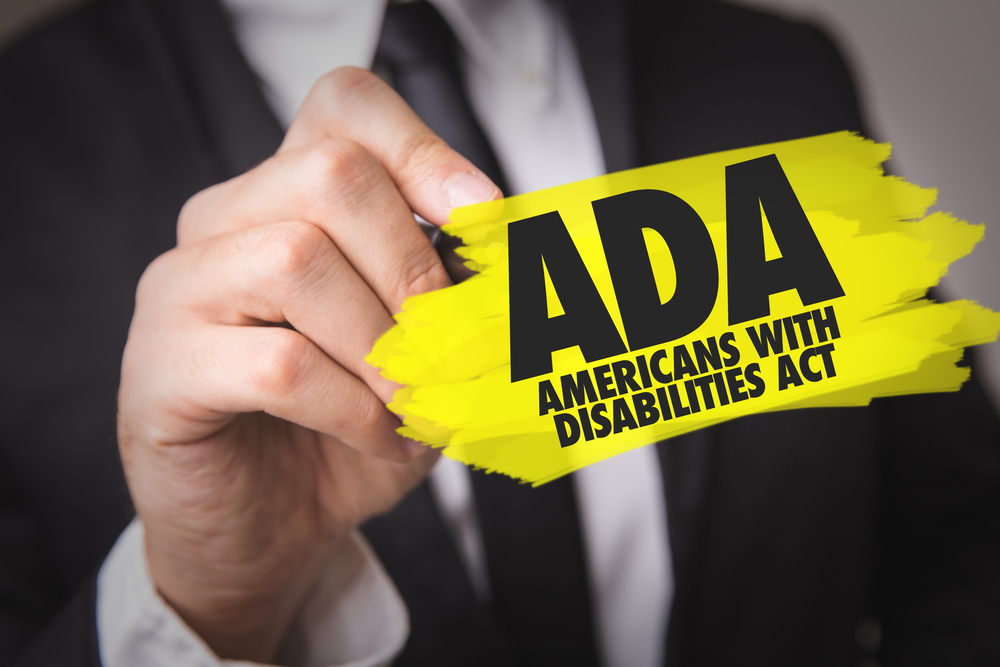MS and Employment: Asking for Reasonable Accommodations
Written by |


For those of us in the workforce, our MS can sometimes make a workday challenging. The Americans with Disabilities Act allows for an employee to request reasonable accommodations from their employer. Included in the act are three broad accommodation categories. One focuses on the hiring process, and another ensures that employees with disabilities can enjoy the same benefits of employment as others.
This column will focus on the third type of accommodation:
“Modifications or adjustments to the work environment, or to the manner or circumstances under which the position held or desired is customarily performed, that enable a qualified individual with a disability to perform the essential functions of that position.”
Many people with MS are fully employed without the need for reasonable accommodations. However, the changing and evolving nature of this disease may mean that work we were able to do yesterday will require some modifications tomorrow.
This somewhat begs the question of “disclosure” at work: If you ask for an accommodation, your employer will know that something is going on with your health. (They do not have to know that you have MS.) I won’t explore that topic here, but I hope to delve into a discussion of disclosure in the future.
I have made three different reasonable accommodation requests over the past 13 years. My employer has been supportive of each request, which included a flexible work schedule, relocation of my workspace, and an air-conditioning unit for a workspace that was consistently too hot.
Some general categories may include:
- making existing facilities accessible;
- job restructuring;
- part-time or modified work schedules;
- acquiring or modifying equipment;
- changing tests, training materials, or policies;
- providing qualified readers or interpreters;
- reassignment to a vacant position.
The Enforcement Guidance section of the Equal Employment Opportunity Commission‘s website explains that “reasonable” is defined as something that is both “plausible” and “feasible.” In other words, does it make sense and can it be done? This also means that the cost must be feasible and cannot create an “undue hardship” on the employer.
A reasonable accommodation allows an employee to perform essential functions of the job. For instance, I can request an ergonomically correct workstation due to muscle spasms because my essential job functions involve working on the computer and talking on the phone. However, if I want to travel long-distance to a conference I cannot ask for a reasonable accommodation to pay more for me to stay in a quieter location because attending a conference is not an essential function of my job.
Under this law, an employer is not required to:
- eliminate an essential job function;
- lower production standards, whether quantitative or qualitative;
- provide something that can also be used for personal needs, i.e. cane, scooter, or eyeglasses.
The Enforcement Guidance provides many scenarios and answers to frequently asked questions. If you may benefit from a reasonable accommodation at your job, please consider talking to your healthcare provider and human resources department to find a solution. With each of my requests, I provided a letter from my healthcare provider stating that I have a disability and the specific accommodation requested would allow me to perform the essential functions of my job.
Don’t be afraid to advocate for your needs. A reasonable accommodation isn’t about a handout, special treatment, or just helping you — your employer also will benefit by providing the tools that you need to effectively do your job. Additional advice may be sought from a legal adviser or your local Division of Vocational Rehabilitation.
***
Note: Multiple Sclerosis News Today is strictly a news and information website about the disease. It does not provide medical advice, diagnosis, or treatment. This content is not intended to be a substitute for professional medical advice, diagnosis, or treatment. Always seek the advice of your physician or other qualified health provider with any questions you may have regarding a medical condition. Never disregard professional medical advice or delay in seeking it because of something you have read on this website. The opinions expressed in this column are not those of Multiple Sclerosis News Today or its parent company, Bionews Services, and are intended to spark discussion about issues pertaining to multiple sclerosis.



Eileen Torchio
Please do address the issue of disclosure in the workplace ASAP
Judy Lynn
I will do my best to cover that topic in the next month!
Dianna Monk
I current work at a bank and the handicap parking is just as far as the regular parking with a slight hill you have to walk up. I walk with a four wheel walker which its difficult to walk up, one time my walker rolled away from and I fell, another handicap parking area you have to walk around a large grassy area. I have a choice to walk around grass or walk up a slight hill. My work place is not handicap friendly as far as parking, I talk to my management about it and I've been waiting for a response for several weeks, they can make grassy area a handicap parking which would be nice, when weather is bad I have to ask co-worker if they could go get my car which they don't mind, but I'm getting the feeling that management want me to quit because I'm a liability.
Judy Lynn
I'm sorry to hear all of that, Diana! It doesn't sound like your bank (also a place the public visits) is very accessible. I suggest trying to find a local ADA office, calling your Division of Vocational Rehabilitation, or getting some legal advice about the parking situation. Did you put your request in writing or use the words "reasonable accommodation"?